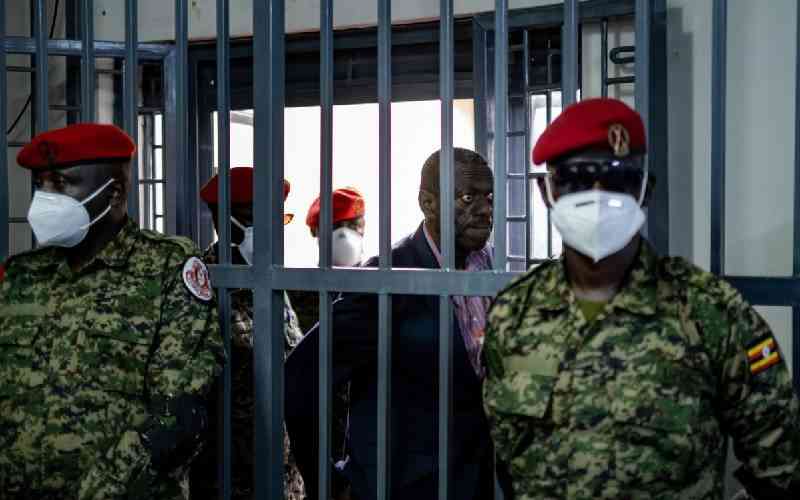
To open a shop is easy, to keep it open is an art, goes the Chinese saying that is now resonating with many Kenyans.
Many Kenyans are betting on businesses for survival and have registered companies as vehicles to carry their ambitions.
And many times, they introduce themselves as company owners. They are the CEOs in their own rights. But business is not coming in—only bills and more bills.
Official data shows at least 247 business names and 129 private companies are registered daily in Kenya as people seek to better their fortunes.
In 12 months to June 2021, there were 101,674 business names and 50,932 private companies registered. But that is one side of the coin.
For Brian Makanga, this is the eighth year since he registered his company—Akof East Africa —ushering in a period he had not imagined.
Armed with business management degree, his idea was to tap into government’s focus on youth tenders. He wanted to raise money and later on diversify his business’ revenue streams.
“I am a company owner. That is where the story starts. Sadly, it ends there too,” says Makanga.
“Since 2019, I have not succeeded in winning any tender. I had hoped this could start me off before expanding to other revenue streams. The government talk about supporting youth largely exists on paper.”
Having missed to file several value added tax (VAT) returns, the Kenya Revenue Authority’s iTax system shows Makanga is supposed to pay about Sh80,000 in tax and penalties.
That could mean he is not going to do business with government again unless that is cleared. For him, the dream of growing a business that could employ other youth seems like a mirage now.
And Makanga is not alone. Thousands of other young people who had registered companies to start off as suppliers to the State and raise money to branch into other businesses have not had the best of times.
For the few tenders they get, delayed payments for the supplies made to national and county governments have only served to complicate their fortunes.
National Treasury data showed national government’s pending bills as at June 2021 stood at Sh359.5 billion.
Stay informed. Subscribe to our newsletter
The highest percentage of the unpaid bills (69.9 percent or Sh251.29 billion) belonged to contractors and suppliers of goods and services—the category where Makanga’s supplies belong.
For Samuel Wanjohi, the journey started in 2017 when he set up Avolinks Limited—a firm targeting supplies and construction of roads and buildings.
He too suffered from delayed payments and says had this found him with bank loans, the business would have surely come down.
“It calls for a lot of patience and hustle before you get to shine or even have something left in the account. It will take time but we are moving,” said Wanjohi.
“There is also the social capital. When you have some creditors who are your friends and relatives and aren’t asking for their money that bad, it helps. If it were banks, the business could have gone down.”
Ken Gichinga, the chief economist at Mentoria Economics, has spent several years helping businesses on mapping out their strategies.
He says a new pattern is now emerging: many of the businesses coming for advice have already taken the first wrong step.
“When you ask them why they have failed, the common thread is that they had one client and the business lost track the moment they lost such client,” says Gichinga.
“We spend most of the time doing strategy 2.0. Few people come in asking for the first strategy for their new business.”
This, he says is due to failure to map out the market before registering businesses. In the end, they come crushing.
Kenya gazette, the official publication of the government, is replete with companies applying to be dissolved— pointing to aspirations that never transitioned into reality.
In last Friday’s Kenya gazette the registrar of companies Joyce Koech published a list of 37 companies that had applied to be dissolved. Another 44 were published as having been granted the request to dissolve.
“The companies are dissolved and their names have been struck off the Register of Companies with effect from the date of publication of this notice,” said Koech in the notice.
Two weeks earlier, another 137 companies had sought to be dissolved while another 27 were granted the dissolution that day.
Avolinks’s Wanjohi says it has taken him a very strong heart to carry on. He adds that he would never want to take that painful path of closing down.
“With the delayed payments, if I was a director with a faint heart, I would have fallen in the categories of those who create companies and close immediately setbacks come,” he says.
Not many firms have held firmly. Many other small firms have been closing or just opting to remain as briefcase companies, pointing to the tricky landscape once they are registered.
Mentoria’s Gichinga said, for many, this could be a pointer to the “shortcut mindset” that has been taken by people when they set out to start companies.
“It comes down to the people not understanding how to grow a business. A lot of these businesses believe in tenderpreneurship culture. They target nothing beyond tenders,” says Gichinga.
“Because of this, many businesses don’t invest in strategy. Strategy only becomes an afterthought once they start crumbling.”
For many, the intervention comes rather too late, leaving owners with broken dreams and loans to repay.
Kenya Revenue Authority (KRA) in May raised alarm about the increased number of people and businesses who though registered for tax, have perennially failed to file their tax returns or were always filing nil returns.
The taxman in June then proceeded to cancel the VAT obligations of 66,269 such taxpayers, an indication that many registered businesses were not trading.
Some businesses had even been hit by VAT penalties in the process over the failure to keep up with the monthly filings.
A previous survey by the Kenya National Bureau of Statistics (KNBS) showed 2.2 million micro small business shut down in the five years ending 2016.
The figure is an equivalent of approximately 440,000 MSMEs closing yearly, raising concern over sustainability of this critical sector.
A High Court judge recently put KRA on the spot, saying it had become a monster by killing local businesses over alleged failure to pay taxes.
“When KRA proceeds to kill businesses in the guise of collecting taxes, it becomes an undertaker and will itself eventually die since its survival depends on the existence of income generating businesses from which it can collect taxes,” ruled Justice Weldon Korir.
[email protected]
 The Standard Group Plc is a
multi-media organization with investments in media platforms spanning newspaper
print operations, television, radio broadcasting, digital and online services. The
Standard Group is recognized as a leading multi-media house in Kenya with a key
influence in matters of national and international interest.
The Standard Group Plc is a
multi-media organization with investments in media platforms spanning newspaper
print operations, television, radio broadcasting, digital and online services. The
Standard Group is recognized as a leading multi-media house in Kenya with a key
influence in matters of national and international interest.
 The Standard Group Plc is a
multi-media organization with investments in media platforms spanning newspaper
print operations, television, radio broadcasting, digital and online services. The
Standard Group is recognized as a leading multi-media house in Kenya with a key
influence in matters of national and international interest.
The Standard Group Plc is a
multi-media organization with investments in media platforms spanning newspaper
print operations, television, radio broadcasting, digital and online services. The
Standard Group is recognized as a leading multi-media house in Kenya with a key
influence in matters of national and international interest.









